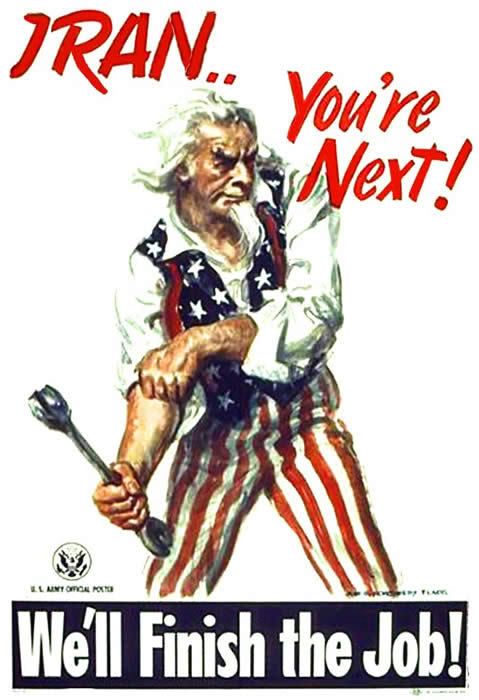I came across this when doing some research in game theory. Andreas Blume at the University of Pittsburgh gives an example, through game theory, of what courses of action the US could take with respect to Iran.
--------------------
Iran and the West
Iran seeks to go forward with work on uranium enrichment.
The US and Europe are worried that having a uranium enrichment facility will eventually enable Iran to build a nuclear bomb.
A coarse description of their respective strategic options might be as follows:
1. The West can ignore the problem, engage in diplomacy, or act militarily.
2. Iran can give up their nuclear ambition, slowly develop its enrichment capabilities, or opt for rapid development.
Some thoughts about payoffs for the West-Iran Game:
1.We will choose to model the conflict as a zero-sum game. A note of caution: This deliberately ignores that there are numerous dimensions of common interest between Iran and the West.
2. It suffices to keep track of the payoff of only one of players (we’ll choose the West); the other player’s payoffs are the same, except with the opposite sign.
3. If Iran decides to give up its nuclear ambition, then ignoring what they do is a valid option for the West, which will be indicated by a positive payoff, 5, for the West. Recall that Iran’s payoff in this case must be −5.
4. Ignoring Iran’s ambitions is less attractive if Iran chooses slow, indicated by a negative payoff, -2, for the West.
5. The worst outcome for the West is to ignore the problem when Iran proceeds rapidly, indicated by a payoff of -6.
6. The best outcome for the West with diplomacy would be if Iran gave up its ambition. The worst outcome in this case would be if Iran kept slowly developing its enrichment capabilities. In the case that Iran proceeded
rapidly, it would then be possible to convince others, e.g. Russia and China, that diplomacy has been exhausted.
7. Military action, in the game we will set up, is the preferred option only in the event that Iran proceeds rapidly.
Give Up __Slow __Rapid
__________________West __ Diplomacy _____4 ____-1 ____1
_______________________________Act _____-5 ____-4 ____2
Consider the West’s decision problem first:
2. Against an omniscient adversary with diametrically opposed interests, the West’s payoff from diplomacy is -1.
3. Against an omniscient adversary with diametrically opposed interests, the West’s payoff from act is -5.
In this world, Iran will try to minimize the maximum payoff that the West can achieve against any of Iran’s strategies.
Recall our assumption that Iran’s goal is to minimize the maximum payoff the West can achieve against Iran’s strategy.
Observe that both the West and Iran can guarantee the payoff -1 in this game.
It appears as though Diplomacy is the best course of action.



